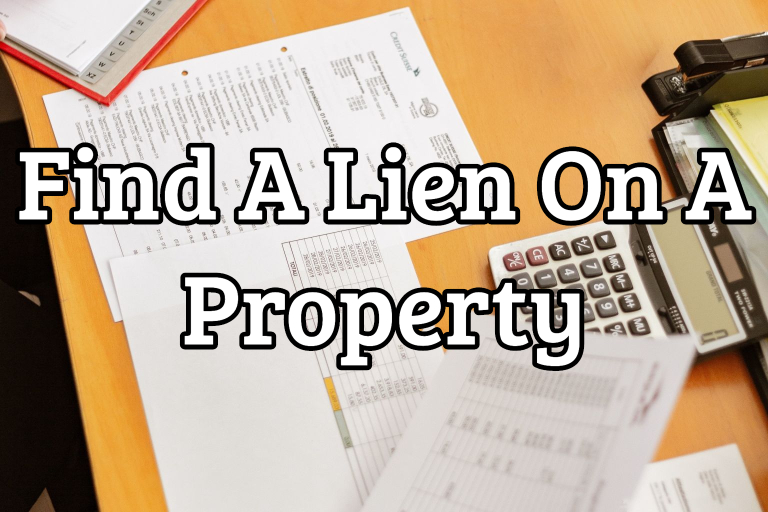HOW TO DO A LIEN SEARCH ON MY PROPERTY

Property owners as well as potential property buyers should be aware of any and all liens against a property. For an owner, making sure there are no liens is key toward completing a sale. However, some owners are uncertain as to how to do a lien search on my property.
An unsatisfied lien could delay or force cancellation of a sale. Liens are often for thousands of dollars owed. A large debt or financial obligations are reasons which cause many owners to need to sell a property. Often times, the ability to execute a quick sale could save foreclosure and/or future credit status.
Liens can be filed directly against the property, which are referred to as Voluntary Liens. This includes the mortgage. However, liens can also be filed against a property for reasons such as a Divorce settlement or IRS back taxes. These are referred to as Involuntary Liens.
Examples of Liens:
- A divorce lien (in which one spouse is stopping the sale of property)
- IRS tax bill(s)
- A judgement lien from a creditor (such as credit card, student loan, etc.)
- Unpaid real estate taxes (such as property taxes, HOA fees)
- Mechanic’s Lien (such as contractors owed for work at subject property)
- Uniform Commercial Code 1 Lien
Why Does A Property Lien Matter?
The significance is that a property sale could stall from an owner obligation having nothing to do with the property. An owner could have no mortgage, no home equity balance, and all property taxes current and everything appears fine. If that same owner faces a lien for previous income taxes owed, that lien could halt the sale.
In order to satisfy a lien, the agreed to amount(s) must be paid prior to or directly at the closing.
Consequently, any and all liens must be satisfied in writing at or before the closing of the property sale. This is why knowing how to do a lien search on my property is so important. A potential buyer can also find this out and possibly use the information to his/her advantage.

Finding A Lien On A Property
The most recommended method of discovering if there is a lien on a property is a title company search. There will be a fee, often in the range of $150, for their services. When choosing a title company, it is helpful to ask about a “title commitment”. This is also known as “title insurance”, and is available when a search is performed prior to a sale.
What title insurance does is protect the results of the search against any future undiscovered liens after the sale. This could save legal fees and court costs down the road.
Working with a title company is not required. A property owner (or potential buyer) can investigate on their own. This is done through the local county assessor office. The search needs to be performed within the county of the location of the property.
For example, suppose my property is on Staten Island, located in Richmond County (NY). I live in Westchester County. The lien search would need to be performed at the Richmond County Assessor location. (This is important to know in the event of an inherited or rental property not lived in by the owner.) Information about specific locations and hours of operation can easily be found online.
If a potential buyer discovers one or more liens against a property under consideration, it does not mean the property can or should not be sold. Although we cannot provide legal or financial advice, there are factors to consider. It is possible the discovery of liens could hinder the negotiation process and/or delay a sale. Perhaps arrangements could be made for payment(s) at closing.
Getting out of debt is often the reason a quick property sale is needed. Making sure that “the coast is clear” can be especially helpful under those circumstances. Either way, knowing how to do a lien search on my property benefits all concerned parties.
